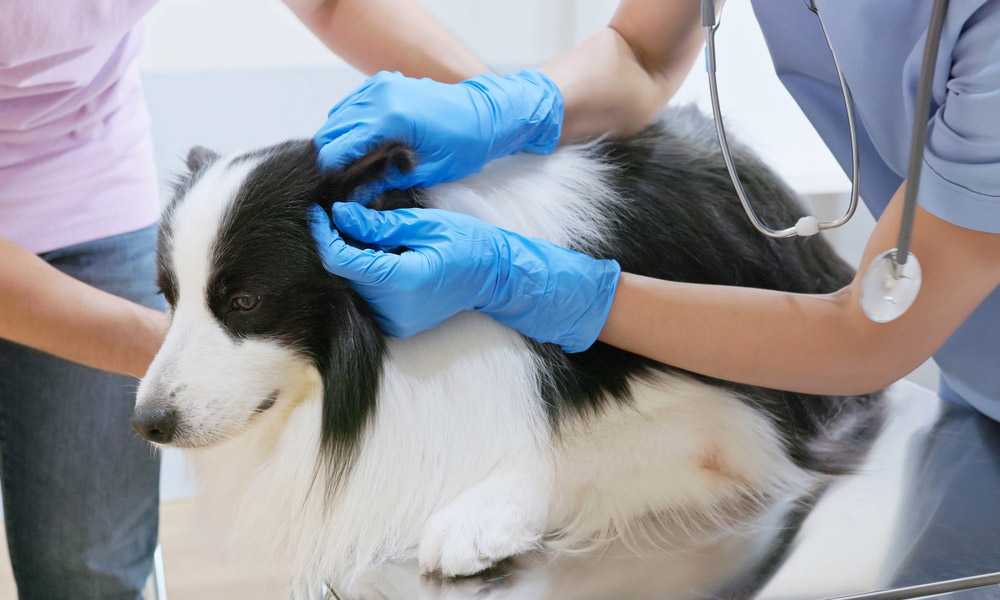Flan is a custard-like dessert that can contain many different ingredients. However, it typically contains eggs, milk, and sugar. While dogs can eat a small amount of dairy products like flan, it isn’t recommended. While flan isn’t toxic, it isn’t usually good for dogs, either.
Read on below to find out why you should avoid giving this dessert to your pooch.
Why Shouldn’t Dogs Eat Flan?
There are a few reasons why flan isn’t suitable for dogs:
- Dairy sensitivity: Many dogs are lactose intolerant. They don’t have the natural enzymes used to digest lactose, the sugar in milk. Therefore, giving dogs flan may lead to digestive issues like diarrhea and gas. However, these problems usually subside on their own after a few hours.
- High sugar content: Flan contains a lot of sugar, like most desserts. Therefore, it isn’t typically a healthy food for dogs. Excessive sugar can lead to various health issues, especially long-term.
- Additives: Flan often contains other ingredients besides the basics, like vanilla extract, artificial sweeteners, and spices. Some can be harmful to canines and may even be blatantly toxic (like xylitol, an artificial sweetener). Therefore, it’s important to double-check the ingredient list if your dog has consumed any flan.
Simply put, flan isn’t necessarily toxic for dogs, but you shouldn’t give it to your dog, either. If you’re looking for special treats for your furry friend, there are many dog-friendly alternatives available, such as specific dog treats formulated with their dietary needs in mind.
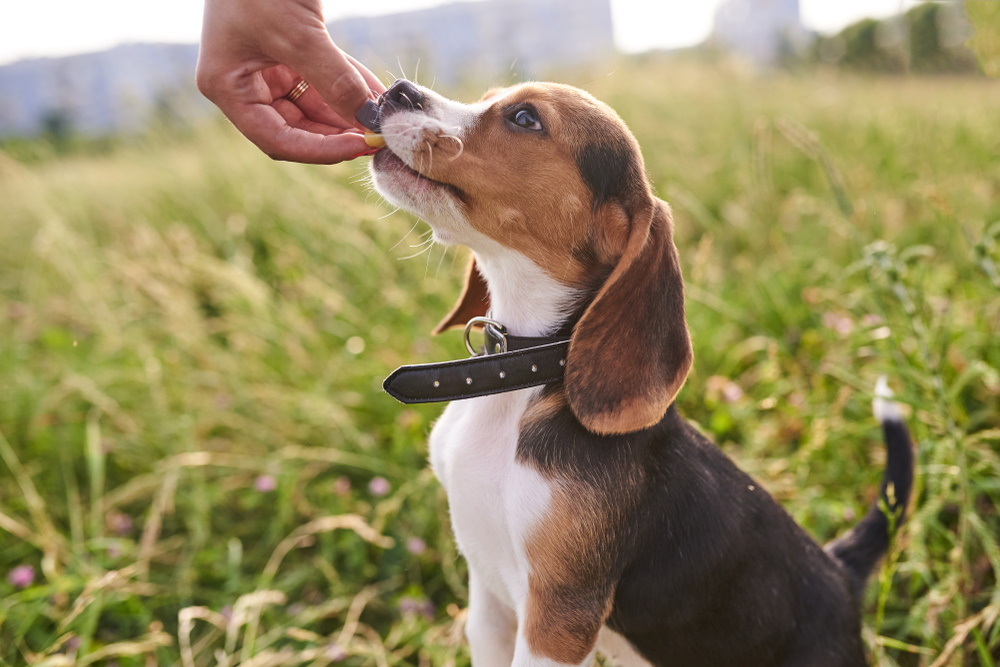
Can My Dog Eat Caramel Flan?
Caramel flans aren’t recommended for dogs. While small amounts of this dessert may not cause problems for dogs, these desserts are often high in sugar and dairy. If fed alongside an unhealthy diet, caramel flan can also contribute to weight gain and diabetes.
Moreover, caramel flan often contains additional ingredients like spices, which can pose further risks. As mentioned earlier, dairy products can be difficult for dogs to digest, and certain spices may be irritating or harmful to them.
You shouldn’t be concerned if your dog snuck some caramel flan off the counter, however, we wouldn’t recommend giving your dog caramel flan regularly.
Is Leche Flan OK for Dogs?
Leche flan is basically the same as regular flan. The two names are often used interchangeably, though some individuals may differentiate between the two. Leche flan is a Filipino dessert that’s made with egg-based custard in caramel sauce.
No matter how you differentiate it from regular flan, this dessert isn’t suitable for dogs, either. It contains many of the same ingredients, including eggs, milk, and sugar.
As we’ve discussed, sugar has tons of potentially negative health effects on dogs. It can be harmful to dogs in larger amounts and when eaten long-term.
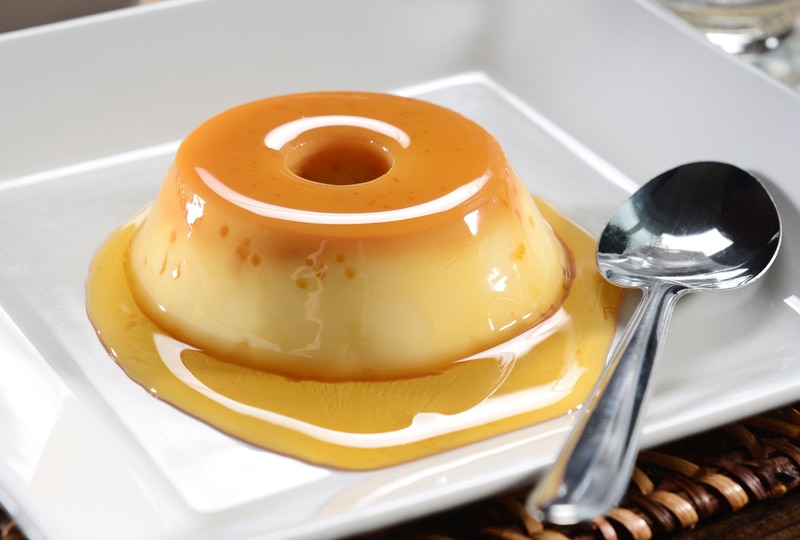
Why Are Some Dairy Products Okay for Dogs While Others Are Not?
Dogs have varying levels of lactase, the enzyme responsible for digesting lactose, the sugar found in milk. As dogs mature, their lactase production tends to decrease, leading to lactose intolerance.
While some dogs can tolerate small amounts of lactose, others may experience digestive issues such as diarrhea, gas, or an upset stomach. Dairy products like plain yogurt or cottage cheese contain lower levels of lactose and can be more easily digested by dogs compared to products like milk or ice cream.
Flan often contains milk and high-lactose-containing dairy. Therefore, it tends to cause stomach upset more than cottage cheese or similar dairy products.
What Are the Signs of Lactose Intolerance in Dogs?
Signs of lactose intolerance in dogs are similar to those in humans, including:
- Diarrhea
- Vomiting
- Gas
- Abdominal discomfort
- Bloating
- Increased thirst
- Urination
These signs of discomfort usually occur shortly after the dog consumes the dairy. However, they may occur many hours later. It all depends on how much the dog ate and how sensitive they are to lactose. Luckily, lactose intolerance isn’t a concern in dogs and doesn’t require any particular treatment.
Unless your dog is at risk of becoming dehydrated (which usually doesn’t occur unless there is an underlying health issue), then veterinary care isn’t needed. Lactose intolerance cannot be cured; the only treatment is to avoid giving your dog dairy products.
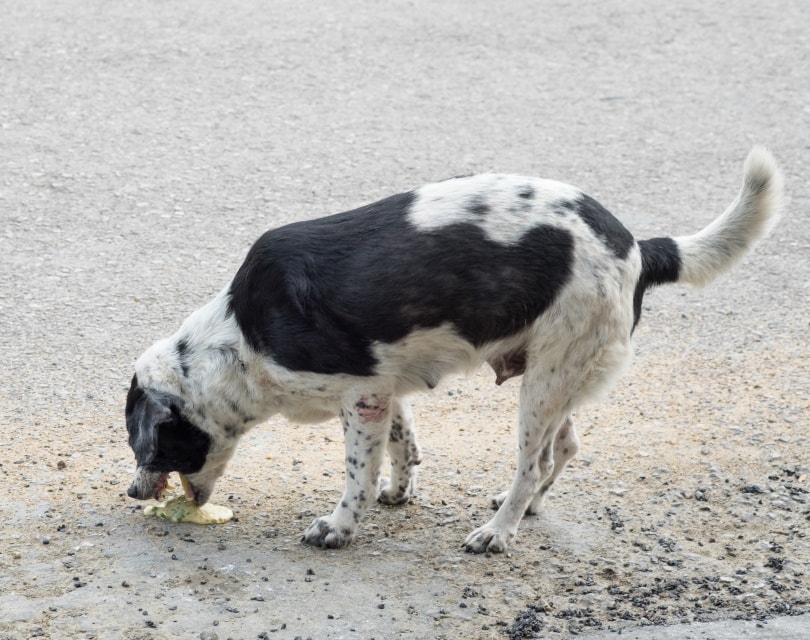
Can Dogs Eat Other Custard-Based Desserts?
Practically all custard-based desserts include similar ingredients to flan, including eggs, milk, and sugar. While custards aren’t toxic, these ingredients can be troublesome. There are plenty of other dog-safe desserts, such as dog-formulated ice cream and similar treats.
Feeding your dog any sort of custard can lead to digestive issues and even long-term health conditions if it is fed regularly. Plus, some custards may contain toxic ingredients, especially savory custards like quiche.
What Are the Risks of Feeding Dogs Lots of Sugar?
Feeding dogs foods high in sugar can lead to various health issues. Excessive sugar consumption can contribute to weight gain and obesity, which can put additional strain on a dog’s joints and organs. Moreover, a diet high in sugar can negatively impact a dog’s blood sugar levels and potentially contribute to the development of diabetes or other metabolic disorders.
Therefore, it is crucial to limit your dog’s intake of sugary foods, including flan. It simply isn’t a healthy option.
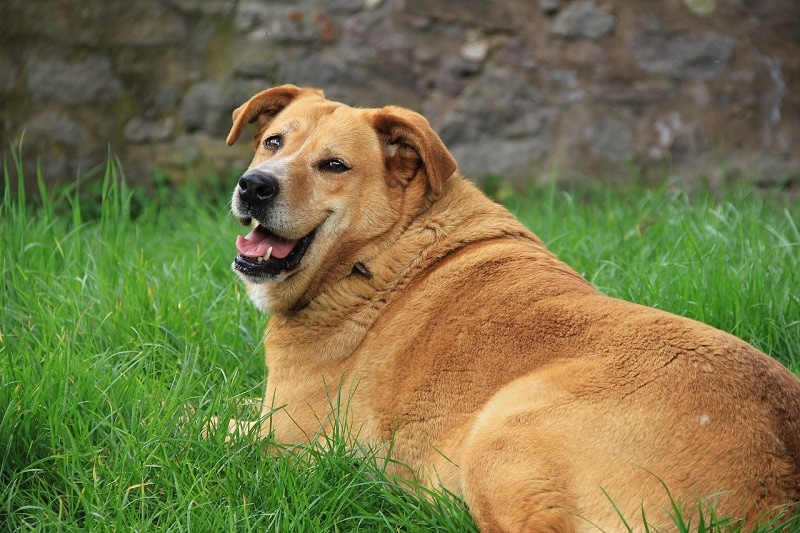
What Spices Are Toxic to Dogs?
We’ve mentioned that certain spices may be present in flan that are toxic to dogs. These spices include onion, garlic, nutmeg, and others. These spices are toxic and should be avoided whenever possible. Onion and garlic, in particular, can lead to anemia, though symptoms often don’t occur for some time after the dog consumes the spices. Nutmeg can be toxic in large quantities. It causes signs like hallucinations, increased heart rate, and abdominal pain.
It’s best to avoid spices altogether when you’re feeding your dog, as many that are safe for humans aren’t safe for our canines.
Final Thoughts
Flan and similar desserts aren’t safe for dogs. The basis of these desserts is milk, eggs, and sugar. While properly prepared eggs are okay for dogs, milk and sugar are not. Sugar can lead to a range of health issues, like diabetes and weight gain.
Similarly, many dogs are lactose intolerant, making milk a no-go. Most custards like flan will lead to digestive upset in dogs. Your dog may be very happy to eat the flan, but they probably won’t enjoy it much later.
Therefore, it’s important to avoid feeding your dog flan. However, you shouldn’t be concerned if the canine ate a small amount of flan behind your back. It isn’t toxic, but it isn’t healthy, either.
See also:
- Can Dogs Eat Yogurt? Vet Approved Nutrition Facts & FAQ
- Can Dogs Eat Fortune Cookies? Vet-Reviewed Nutrition Facts & FAQ
Featured Image Credit: demidoff. Shutterstock
Contents
- Why Shouldn’t Dogs Eat Flan?
- Can My Dog Eat Caramel Flan?
- Is Leche Flan OK for Dogs?
- Why Are Some Dairy Products Okay for Dogs While Others Are Not?
- What Are the Signs of Lactose Intolerance in Dogs?
- Can Dogs Eat Other Custard-Based Desserts?
- What Are the Risks of Feeding Dogs Lots of Sugar?
- What Spices Are Toxic to Dogs?
- Final Thoughts









